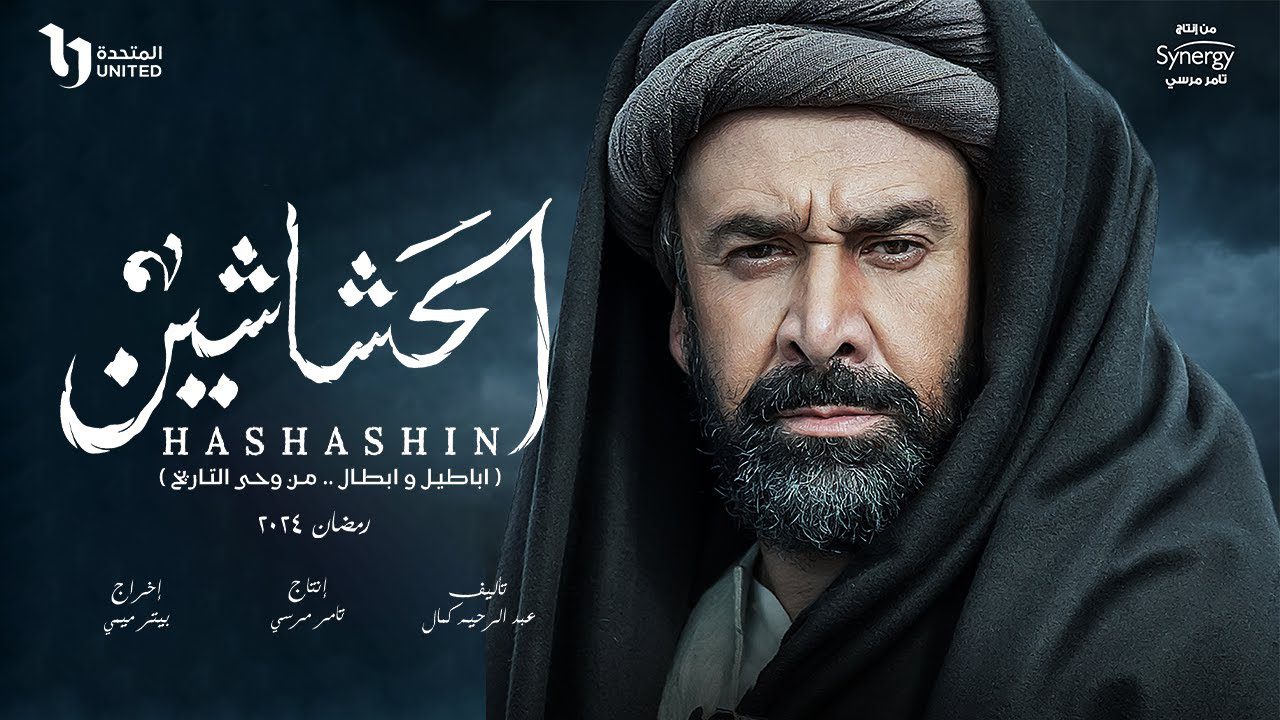The Assassins series: Debate over language choice – Dailynewsegypt


The television series “The Assassins,” featuring Karim Abdel Aziz, ignited a debate over its linguistic approach. The show predominantly utilized the Egyptian colloquial dialect, which was unexpected for many viewers. Given the historical importance of the Ismaili sect and the era depicted, a classical Arabic rendition was anticipated by the audience.
Historically, Arab viewers have engaged with Islamic historical dramas in classical Arabic. Renowned series such as “Muhammad, the Messenger of God” (1980), “There is no god but God” (1985), “Al-Fursan” (1994), “Al-Zaher Baybars” (2005), “Haroun Al-Rashid,” “Omar bin Abdulaziz,” and “Kingdoms of Fire” have set this precedent, employing a classical yet accessible language.
These series have not only been comprehensible but also pivotal in cultural and intellectual enrichment. This discussion does not diminish “The Assassins” but rather invites dialogue among enthusiasts of art, thought, and culture to deliberate on the series’ language choice. Did the creators make the right decision with the colloquial dialect, or should classical Arabic have been used? The rationale behind their choice follows.
Uniqueness of The Assassins
Peter Mimi, the director of “The Assassins,” addressed the criticism regarding the language on social media. He clarified that the narrative, set amidst Turkish and Persian interactions and originally presented in Turkish, justified the use of the Egyptian dialect for this Egyptian adaptation. He also highlighted the series’ international reach, with subtitles making it accessible globally, including in Russia and America. He drew parallels to historical figures in other dramas, like the “Vikings” speaking English or “William Wallace” without an American accent, to underscore the creative liberties taken.
Peter emphasized that “The Assassins” is a historical drama inspired by events, not a documentary. The series aims to offer a captivating portrayal of history, backed by extensive research into rare historical texts to craft a distinctive narrative. He assured viewers that the series would progressively address their curiosities and encouraged the discourse that the series has sparked, leading to increased interest in historical inquiry and discussion.
Disappearance of Classical Arabic in Modern Art
Renowned actress Samiha Ayoub has voiced her concern over the diminishing presence of classical Arabic in modern artistic expressions, particularly in television and cinema. She asserts that classical Arabic serves as a vital link for audiences to fully grasp historical narratives and for younger generations to foster a connection with the language of their heritage.
While she notes the absence of classical Arabic in recent works, she concedes that the use of Egyptian colloquial language, as exemplified by “The Assassins,” can enhance comprehension if the content is compelling and resonates with viewers.
Language as Directorial Instrument
Director Khaled Youssef offers a surprising perspective: classical Arabic was never a spoken language in any historical period. He explains that the Arabian Peninsula’s inhabitants spoke in their local dialects, each tribe with its unique lexicon, mirroring today’s dialectical diversity across the Arab world.
He elaborates that the belief in classical Arabic’s historical dominance was widespread until the discovery of Ibn Quzman al-Qurtubi’s colloquial poetry from 12th-century Andalusia, revealing a distinct regional dialect.
Youssef noted that writer Jalal Amin’s research supports this, indicating that historically, people communicated in their colloquial tongues, reserving classical Arabic for written works. Consequently, the specific dialect spoken during Hassan Al-Sabahi’s time remains a mystery.
Youssef concludes by likening language in art to a director’s tool, asserting that directors may choose whichever language or dialect best suits their vision, much like an American or French director might opt for English or French dialogue in their historical portrayals.
Rethinking Artistic Conventions
Film critic Tarek El-Shenawy remarked on the use of the Egyptian colloquial dialect in “The Assassins,” noting it as a standard practice. He pointed out that historical figures are often depicted speaking modern languages in global cinema, citing Ridley Scott’s portrayal of Napoleon Bonaparte speaking English as an example. El-Shenawy challenges the notion that historical and religious narratives must adhere to classical Arabic, a convention dating back to the 1960s.
Language Debates
Abdel Rahim Kamal, the writer behind “The Assassins,” shared insights into the language decision for the series. After extensive discussions with director Peter Mimi, they opted for the Egyptian colloquial dialect to reach the vast Arab and Egyptian audience, which numbers over 450 million.
Kamal reflected on his proficiency in Classical Arabic, having authored novels, short stories, plays, and over 14 books in the language. Despite this, he favoured the Egyptian dialect for its immediacy, authenticity, and simplicity, which he felt was better suited for the series’ intricate and nuanced subject matter.






